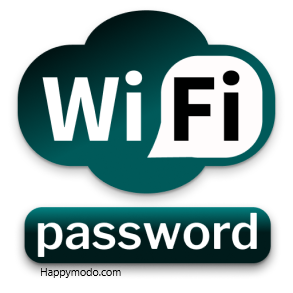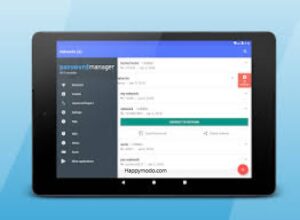Wi-Fi Password Manager Mod Apk Free Download [Latest Version]
Wi-Fi Password Manager is a mobile application designed to securely store and manage your Wi-Fi network credentials. With an intuitive interface and robust security features, it eliminates the hassle of remembering complex passwords or scrambling for router labels. Gone are the days of forgotten Wi-Fi passwords and frustrating connection attempts. Wi-Fi Password Manager simplifies your digital life by acting as a central hub for all your Wi-Fi network information. Add new networks, view existing passwords, and manage your connections with ease. Wi-Fi Guardian is a user-friendly mobile app available for iOS and Android devices. It acts as a secure vault for your Wi-Fi network passwords. With military-grade encryption, you can be confident your login details are protected from unauthorized access.
A Wi-Fi password acts as a digital key, granting access to your wireless network. It’s a secret code that prevents unauthorized devices from connecting and potentially compromising your internet security. The password itself is a string of letters, numbers, and sometimes symbols, configured by your router’s settings. This guide outlines the importance of strong Wi-Fi passwords and provides tips on creating them. You’ll learn about common password mistakes, password complexity, and best practices for managing your Wi-Fi password.
Your Wi-Fi network is your gateway to the internet. It allows you to connect your devices, access online services, and communicate. A weak Wi-Fi password leaves your network vulnerable to unauthorized access. Hackers can exploit this access to steal your data, infect your devices with malware, or even use your network to launch attacks on others.
Key Features:
Wi-Fi Guardian goes beyond simply displaying your Wi-Fi password. It equips you with tools to create robust passwords and manage them securely.
- Strong Password Generator: Generate complex, unique passwords that are resistant to brute-force attacks. Wi-Fi Guardian offers options to customize password length, character types (uppercase/lowercase letters, numbers, symbols), and avoid easily guessable patterns.
- Password Masking: View your Wi-Fi password as masked characters, minimizing the risk of accidentally revealing it to others.
- QR Code Sharing: Share your Wi-Fi password securely with authorized devices by displaying a unique QR code. Simply scan the code with the guest device’s camera for a seamless connection without manually typing the password.
- Password History: Maintain a record of past Wi-Fi passwords for easy reference or reverting to a previous configuration if needed.
What’s New:
Wi-Fi Guardian is constantly evolving to address emerging security threats and enhance your user experience. Here are some exciting new features:
- Vulnerability Alerts: Receive timely alerts for known vulnerabilities in your router firmware and Wi-Fi security protocols. Wi-Fi Guardian suggests updates to patch these vulnerabilities and keep your network secure.
- VPN Integration: Connect to your preferred VPN service directly from within the Wi-Fi Guardian app, adding an extra layer of encryption and anonymization to your internet traffic.
- Device Prioritization: Prioritize bandwidth allocation for specific devices, ensuring a smoother online experience for devices that require higher bandwidth, like streaming devices or gaming consoles.
- IoT (Internet of Things) Management: Gain visibility into the devices connected to your network, including smart home appliances and other IoT devices. Wi-Fi Guardian allows you to manage these devices and ensure their security settings are properly configured.
System Requirements:
Wi-Fi Guardian is compatible with a wide range of smartphones and tablets running on the following operating systems:
- Android: Version 5.0 or later
- iOS: Version 11.0 or later
Uses:
There are legitimate scenarios where you might need to show or share your WiFi password with others. Here are some common instances:
- Guests: Granting temporary access to the internet for friends or family visiting your home.
- New Devices: Connecting new laptops, smartphones, tablets, smart home gadgets, or other devices to your network.
- Troubleshooting: Sharing the password with a technical support representative to assist with internet connectivity issues.
When to Be Cautious About Sharing Your WiFi Password:
While sharing your WiFi password can be convenient, it’s crucial to exercise caution. Here are some situations where you should be wary:
- Public Networks: Avoid sharing your home WiFi password on public Wi-Fi networks, as anyone within range could potentially capture it. Opt for the public network’s password instead.
- Untrusted Individuals: Don’t share your password with strangers or people you don’t know well.
- Unsecured Connections: If you’re unsure about the security of a network, refrain from sharing your password and connecting to it.
Secure Alternatives to Sharing Your WiFi Password:
Here are some secure alternatives to consider when you need to grant internet access without directly revealing your WiFi password:
- Guest Network: Many routers allow you to create a separate guest network with a unique password. This provides internet access to guests without giving them full access to your primary network and its devices.
- Wi-Fi Protected Setup (WPS): Some routers support WPS, which enables connecting devices using a physical button press or a PIN instead of a password. However, WPS has known security vulnerabilities, so use it with caution.
- QR Code Generation: Certain router models or apps allow generating a QR code that encodes your WiFi network information. This QR code can be scanned by authorized devices to automatically connect.
Considerations and Best Practices:
While Wi-Fi passwords offer a multitude of benefits, it’s crucial to use them effectively to maximize security and functionality:
- Strong Password Creation: Use a complex combination of upper and lowercase letters, numbers, and symbols, avoiding easily guessable information like birthdays or pet names. Consider a password manager to generate and store strong passwords for all your networks.
- Unique Passwords for Different Networks: Don’t reuse the same password for multiple Wi-Fi networks. A breach on one network could compromise the security of others.
- Regular Password Updates: Change your Wi-Fi password periodically, especially if you suspect a breach or unauthorized access attempts.
- Sharing Passwords Cautiously: Avoid sharing your Wi-Fi password with everyone. Only share it with trusted individuals and consider using guest network functionality for occasional visitors.
Thanks for reading, I hope it was useful for you.
Download the Full Version from the button below:


